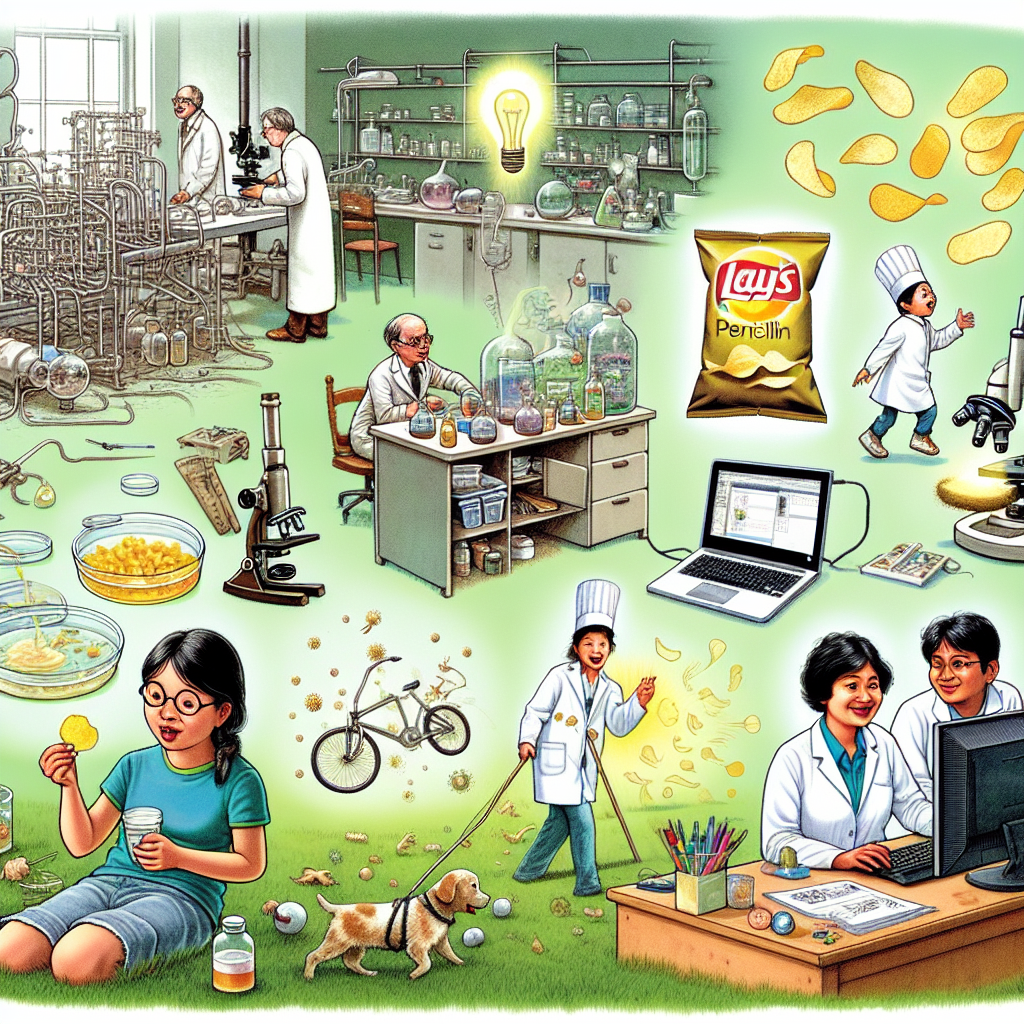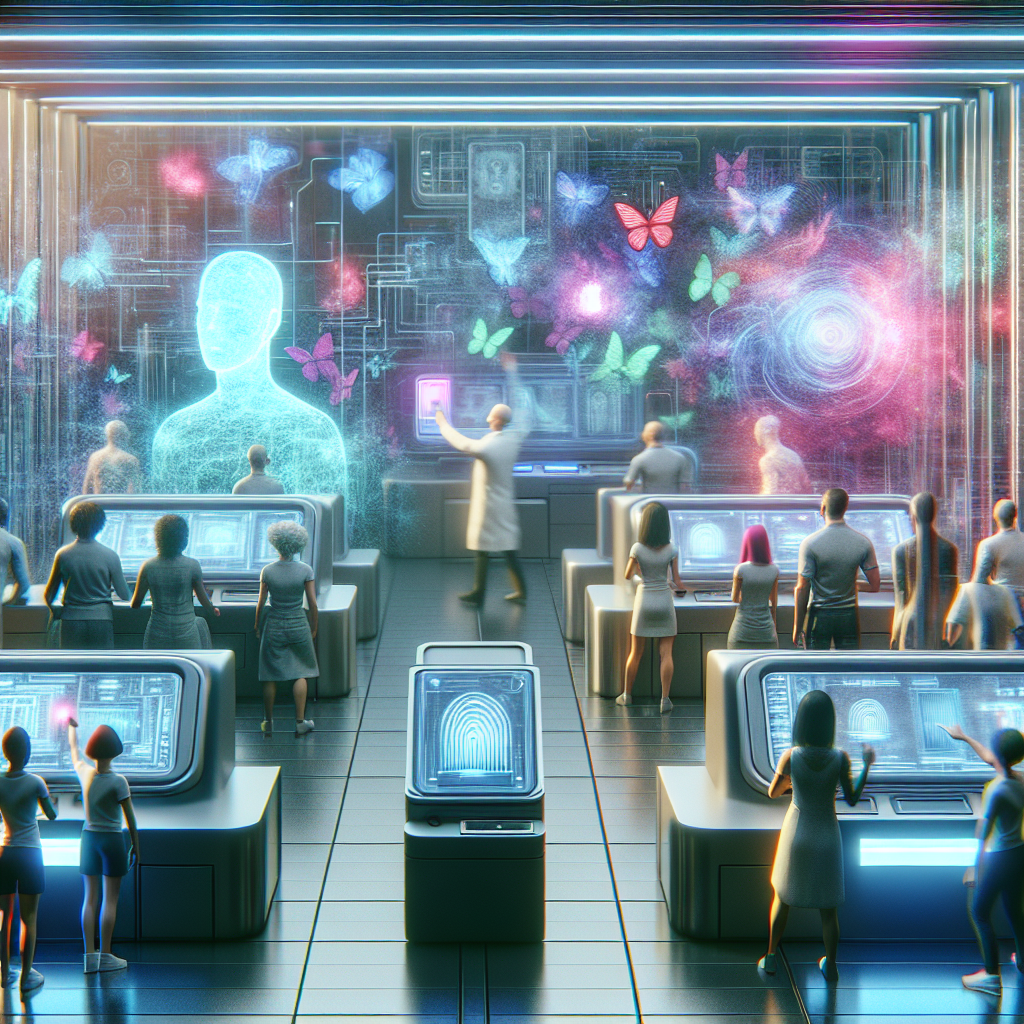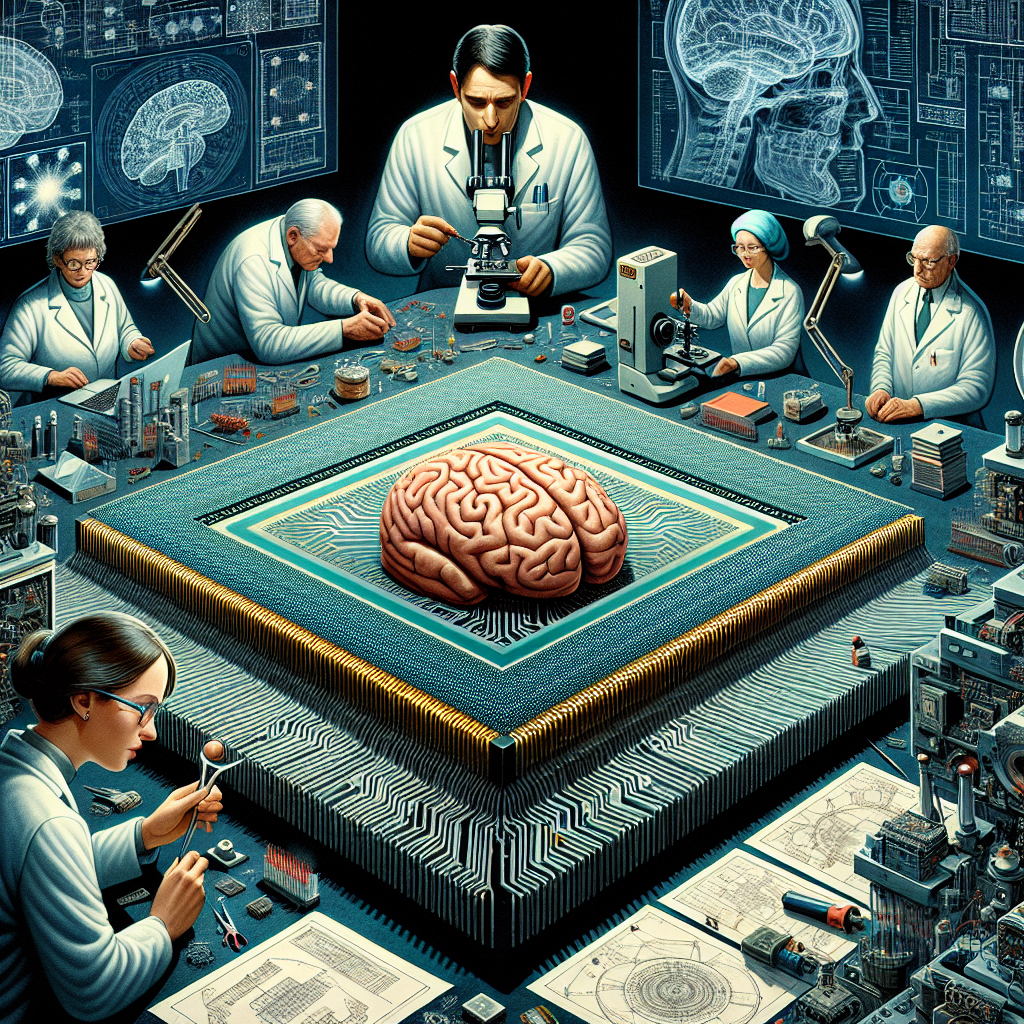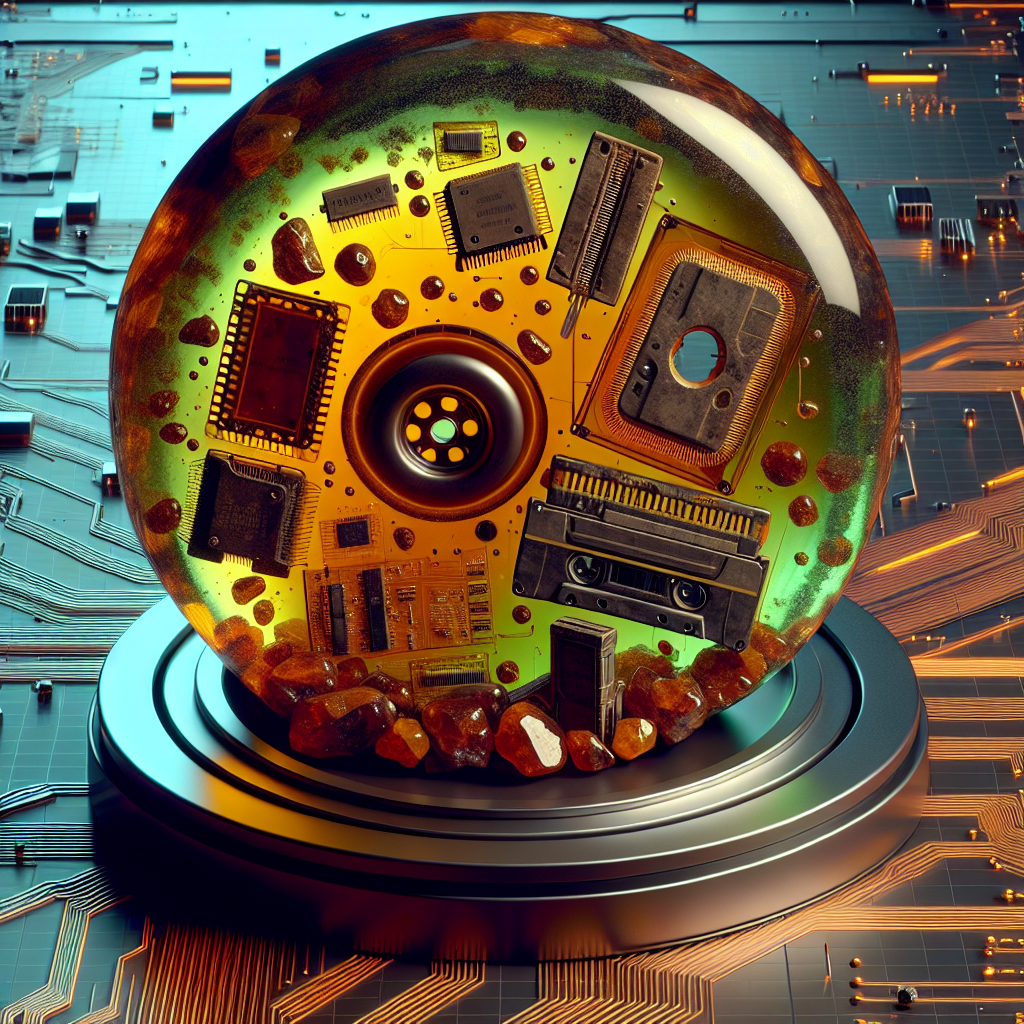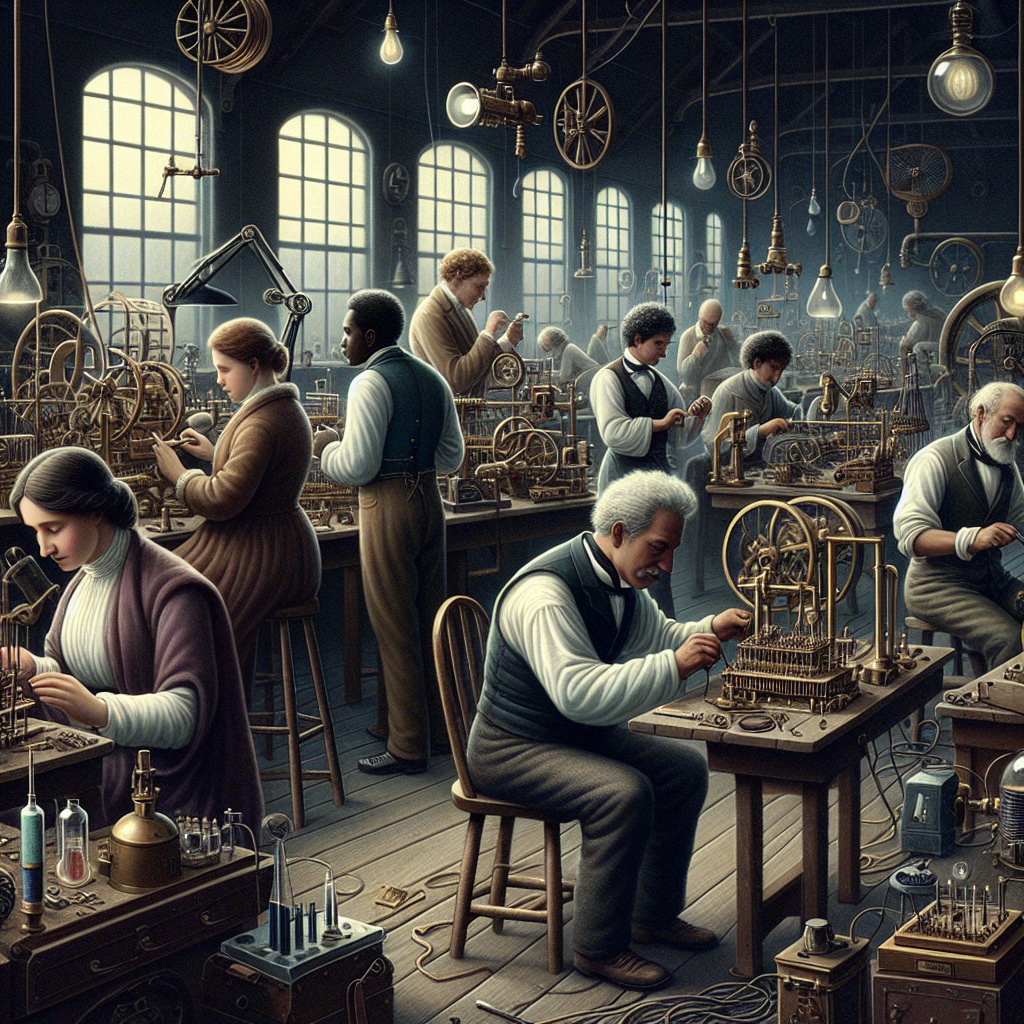Some of humanity’s greatest breakthroughs were not the result of meticulous planning or years of research, but rather of sheer luck — happy accidents that reshaped civilization in ways their discoverers could hardly imagine. From snacks to lifesaving medicines, the world as we know it owes much to mistakes that turned out to be miracles.
Take the story of Alexander Fleming in 1928. Returning from vacation to his cluttered lab, he noticed that a mold had contaminated one of his Petri dishes — and that the bacteria surrounding it had died. That unplanned contamination led to the discovery of penicillin, the first true antibiotic. Fleming wasn’t looking for it; he was actually studying staphylococci bacteria. But that moment of curiosity — of asking “why?” instead of throwing the sample away — ended up saving hundreds of millions of lives.
Then there’s the humble microwave oven, which began with a melted candy bar. In 1945, engineer Percy Spencer was testing radar technology using a magnetron tube when he noticed the chocolate bar in his pocket had melted. Intrigued, he aimed the device at popcorn kernels, which promptly popped — and the idea for the microwave was born. A simple snack experiment turned into one of the most transformative kitchen appliances of the 20th century.
The same kind of serendipity applies to Post-it Notes, one of the most beloved office supplies in the world. Chemist Spencer Silver was attempting to create a super-strong adhesive for 3M but accidentally made one that was weak and easily removable. For years, his “failure” sat unused — until another colleague, Art Fry, had the idea to use it to stick bookmarks in his church hymnal without damaging the pages. Thus was born the sticky note: a small invention that revolutionized how we organize our thoughts.
Sometimes, accidents don’t just change how we work or eat — they redefine entire industries. Vulcanized rubber, for example, came from a moment of frustration. In the 1830s, Charles Goodyear was desperately trying to make rubber less sticky and more durable. After countless failures, he accidentally dropped a mixture of rubber and sulfur onto a hot stove. Instead of melting, the rubber hardened yet stayed flexible — a discovery that made possible everything from tires to waterproof shoes.
Even safety glass, the material that keeps car windshields from shattering, was born out of an accident. In 1903, French chemist Édouard Bénédictus knocked over a glass flask coated with cellulose nitrate. To his surprise, the glass cracked but didn’t break apart. That “failed experiment” became the basis of modern laminated glass, saving countless lives on the road.
And then there’s the sweet story of chocolate chip cookies. In the 1930s, Ruth Wakefield ran the Toll House Inn in Massachusetts and tried to make chocolate cookies by adding chunks of a Nestlé chocolate bar to dough, expecting them to melt. Instead, they held their shape — and the chocolate chip cookie was born. What began as a kitchen miscalculation turned into one of the world’s favorite desserts.
What’s fascinating about these stories isn’t just the luck involved, but the mindset that followed. All these inventors shared one trait: curiosity. They didn’t dismiss their accidents as failures. They noticed, explored, and adapted. That’s the subtle difference between chaos and creativity — the willingness to see potential in the unexpected.
Accidental innovation still happens today. Scientists developing new materials often stumble upon unique properties by chance; pharmaceutical researchers frequently discover new drug uses while testing for unrelated conditions. Viagra, for example, was originally intended to treat heart problems — until researchers noticed its unexpected side effects.
In a way, accidental discoveries remind us that progress isn’t always linear or logical. Sometimes, it’s messy, unpredictable, and full of surprises. The greatest leaps forward often happen when we least expect them — when curiosity meets coincidence. So the next time something goes wrong, remember: today’s mistake might just be tomorrow’s revolution.
